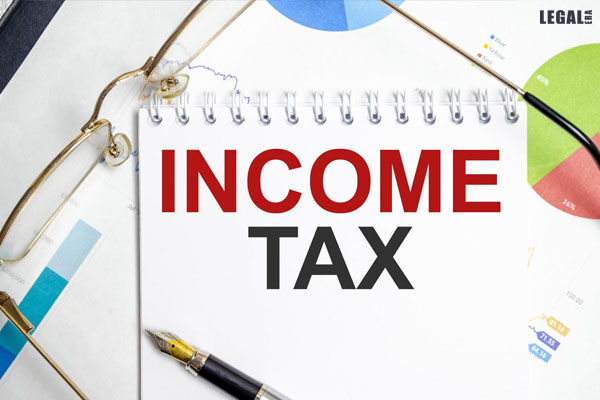
Karnataka High Court Ruling Confirms Interconnect Service Charges are not Considered Royalty for Tax Purposes
Income Tax Department’s appeal against Belgacom’s tax case dismissed due to delay and merit issues
The Supreme Court of India recently dismissed a Special Leave Petition filed by the Income Tax Department, challenging a ruling by the Karnataka High Court regarding interconnect service charges. The judgment, delivered by the Division Bench comprising Justice B.V. Nagarathna and Justice R. Mahadevan, reaffirmed the decision of the Karnataka High Court, which held that payments made for interconnect services do not qualify as “royalty” under the Income Tax Act, 1961. The case has significant implications for the taxation of payments made to non-resident telecom carriers, and the dismissal of the SLP on both delay and substantive merits solidifies the position that such payments are not subject to tax under Indian tax laws.
Background of the Case
The case in question originated from a Special Leave Petition filed by the Income Tax Department against M/s Belgacom International Carrier Services SA, Belgacom, a non-resident telecom service provider. The primary issue before the Supreme Court was whether interconnect service charges paid to non-resident telecom carriers should be classified as “royalty” under the Income Tax Act, 1961, and consequently, whether these payments would be subject to tax in India.
This matter traces its roots to a series of proceedings in the Karnataka High Court, specifically Writ Appeal No. 668 of 2024, which was filed by the Income Tax Department against an earlier decision in Writ Petition No. 5110/2021. In the High Court, the Income Tax Department, represented by E.I. Sanmathi, contested the earlier decision that interconnect service charges paid to foreign telecom operators do not qualify as royalty. The High Court’s decision was in line with a similar ruling made in the case of M/s Vodafone Idea Limited Vs. Deputy Director of Income Tax (ITA No.160/2015), where the High Court also concluded that interconnect service payments should not be classified as royalty.
Karnataka High Court’s Ruling
In its judgment dated 2nd September 2024, the Karnataka High Court bench, comprising Justice S.G. Pandit and Justice C.M. Poonacha, referred to a precedent in the case of M/s Vodafone Idea Limited Vs. Deputy Director of Income Tax (ITA No. 160/2015), where the court had ruled that interconnect service charges did not qualify as royalty. The High Court, in its analysis, referred to paragraph 21 of the Vodafone case, where the Income Tax Appellate Tribunal (ITAT) had already determined that no tax was deductible on payments made to non-resident telecom operators. Furthermore, the High Court pointed out that the Revenue itself had reviewed its earlier stand in subsequent assessments, which further strengthened the respondent’s position. The Division Bench of the Karnataka High Court held that interconnect service charges do not meet the definition of “royalty” under the Income Tax Act, 1961, and ruled against the Revenue. This judgment formed the basis of the Income Tax Department’s appeal to the Supreme Court.
Supreme Court’s Examination of the Case
Upon review of the SLP, the Supreme Court found that the Income Tax Department had filed the petition with a delay of 227 days. The Court noted that the reasons presented by the Revenue for condoning the delay were inadequate, and consequently, it dismissed the application for condonation of delay. The Court then proceeded to examine the substantive merits of the appeal. The Supreme Court deliberated on the issue in light of prior judgments, including the order dated July 14, 2025, in the case of The Deputy Commissioner of Income Tax (International Taxation) Vs. M/s M.I. Limited (Diary No. 27624/2025), where similar issues had been addressed. The Court took note of its earlier rulings and the position established in the Karnataka High Court judgment, ultimately upholding the conclusion that interconnect service payments do not constitute “royalty” under the Income Tax Act, 1961.
Implications of the Ruling
This ruling by the Supreme Court has significant implications for the taxation of telecom interconnect service charges in India. By affirming the Karnataka High Court’s judgment, the Supreme Court clarifies that payments made for interconnect services to non-resident telecom carriers are not taxable as “royalty” under Indian tax law. This decision is in line with prior rulings by the Income Tax Appellate Tribunal (ITAT), which had also determined that such payments do not meet the criteria of royalty payments under the Income Tax Act. This decision is crucial for telecom operators, particularly foreign telecom carriers, as it provides clarity on the taxability of interconnect charges in India. Additionally, it indicates that the Revenue may need to revisit its approach and consider the evolving judicial interpretation of the term “royalty” under Indian tax law.
The Supreme Court’s dismissal of the Income Tax Department’s Special Leave Petition in this case serves to reinforce the Karnataka High Court’s position that interconnect service charges are not subject to tax as royalty under the Income Tax Act, 1961. This ruling not only affirms the legal understanding established by the ITAT and High Court in earlier cases but also offers clarity to telecom operators and stakeholders in the industry regarding the tax treatment of interconnect service payments. With this dismissal on both the grounds of delay and substantive merits, the legal discourse surrounding interconnect service charges in India remains firmly established in favour of the taxpayers.